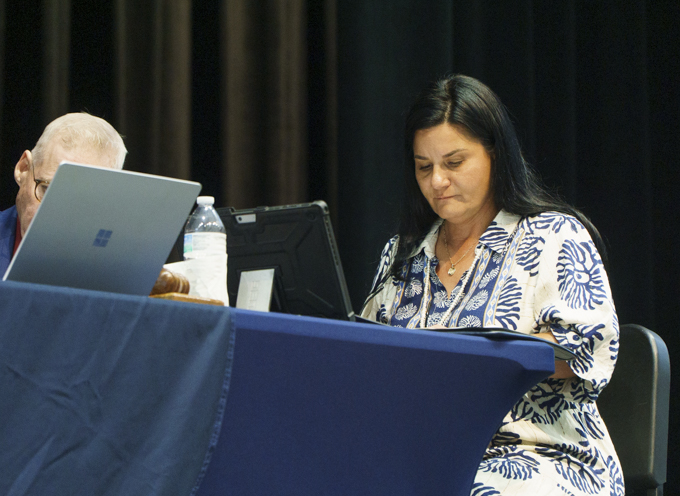Gregg County commissioners move forward with plans to relocate Pct. 2 offices
Published 9:26 pm Saturday, July 12, 2025
A project to move the Gregg County Pct. 2 offices to a new location is advancing.
Commissioners voted Tuesday to solicit bids from contractors to turn a former VeraBank building at 800 Gilmer Road into county offices. County officials purchased the building in 2024 and allocated funding for the project in the 2024-25 budget.
The project will cost roughly $2.5 million and take 270 days to complete, Pct. 2 Commissioner Ray Bostick said. The project will house the justice of the peace courtroom, tax office and commissioner’s office.
Trending
Pct. 2 offices have been in the dilapidated Greggton Community Building on Marshall Avenue for several years, and the new location will be easier and safer for the public to access, Bostick said. The new location will have additional parking and a drive-thru allowing people to register their vehicles or pay property taxes more quickly.
County officials also are replacing the Pct. 3 office in Kilgore.
In other action during Tuesday’s meeting, commissioners approved a project to replace the passenger bridge connecting passenger planes to the terminal at the East Texas Regional Airport. They also approved a project to replace the airport beacon, which helps pilots find the airport during low-visibility conditions.
A federal grant will cover about 95% of the cost of the new bridge and beacon. The new bridge will cost roughly $1.9 million, and the county will have to pay only $107,000, Airport Director Max Tovar said. The new beacon will cost $183,000, and the county will have to pay only $11,000.
Commissioners voted to extend the Federal Aviation Administration’s lease of the air traffic control tower for 50 years until Sept. 30, 2075.
Commissioners also voted to buy back accrued holiday hours from employees of the Gregg County Sheriff’s Office and pay employees for hours they work during holidays moving forward, Sheriff Maxey Cerliano said.
Trending
Previously, employees have accumulated hours they’ve worked during holidays. Some have racked up more than 500 hours that the county would have to pay them if they left their jobs, creating a liability for the county.
“It’s an advantage to the employee because they will be compensated in actual money instead of time,” Cerliano said. “And then it’s an advantage for the county because you don’t bank all the liability. So, it’s a win for the employee. It’s a win for the county.”









